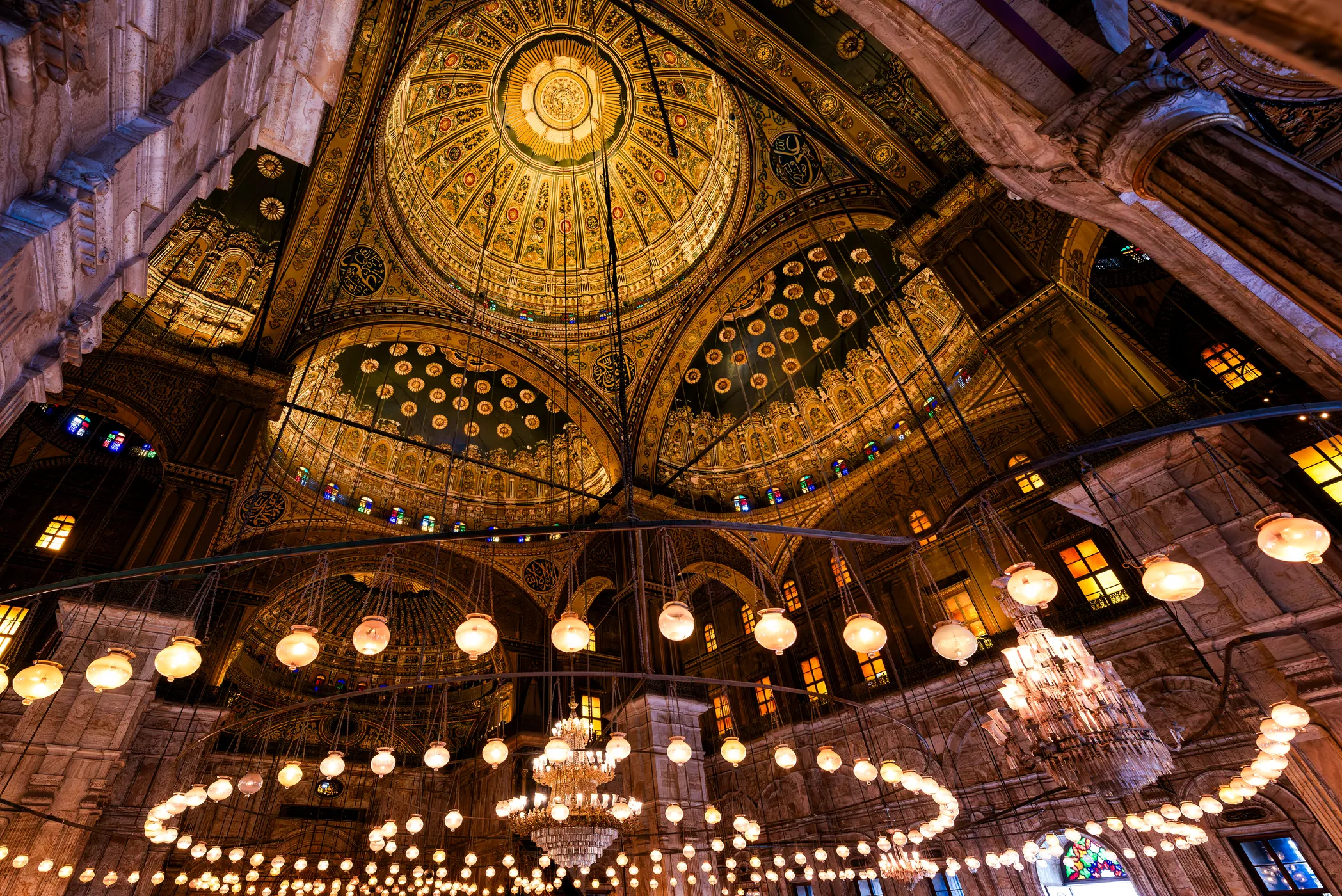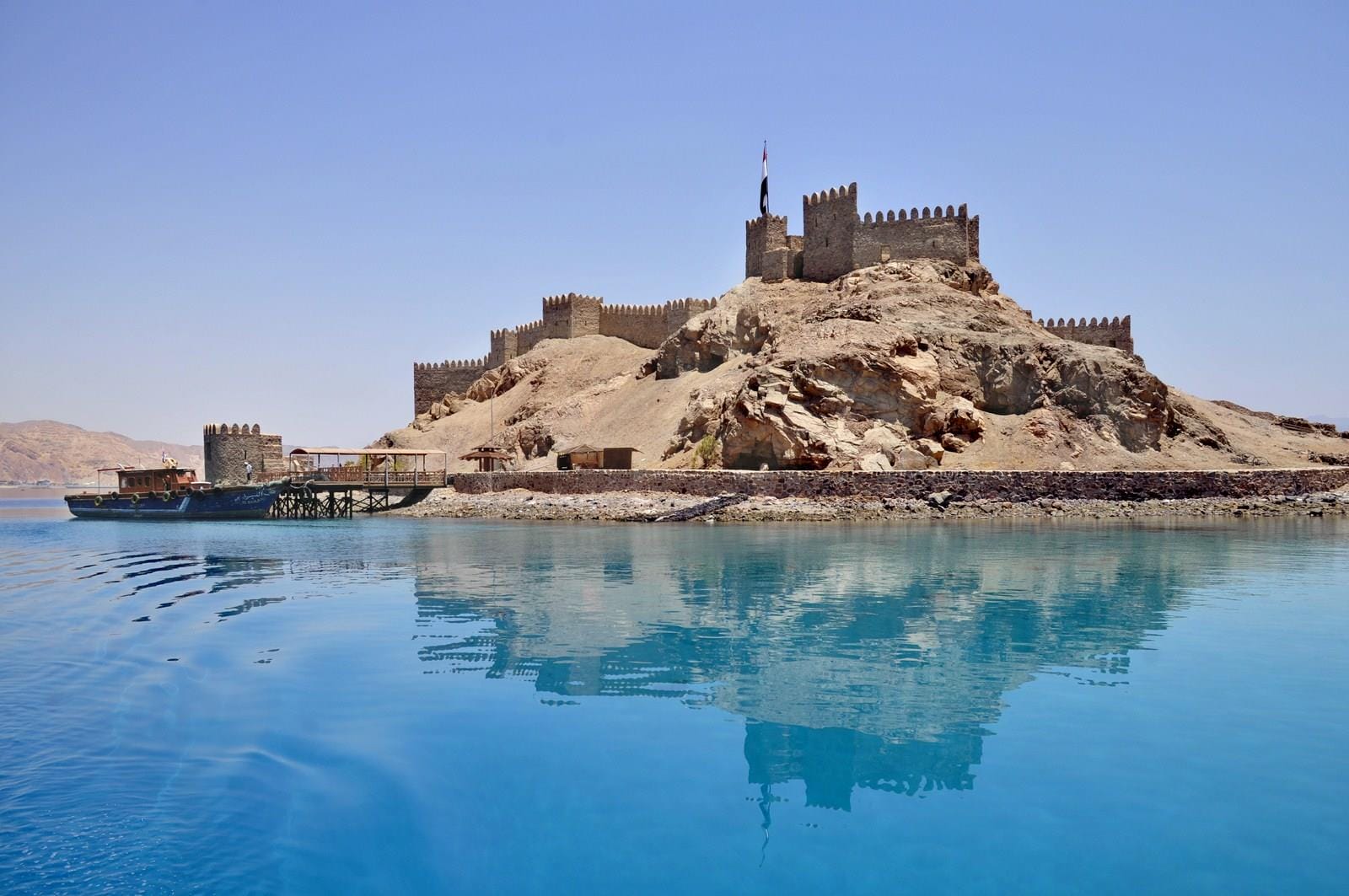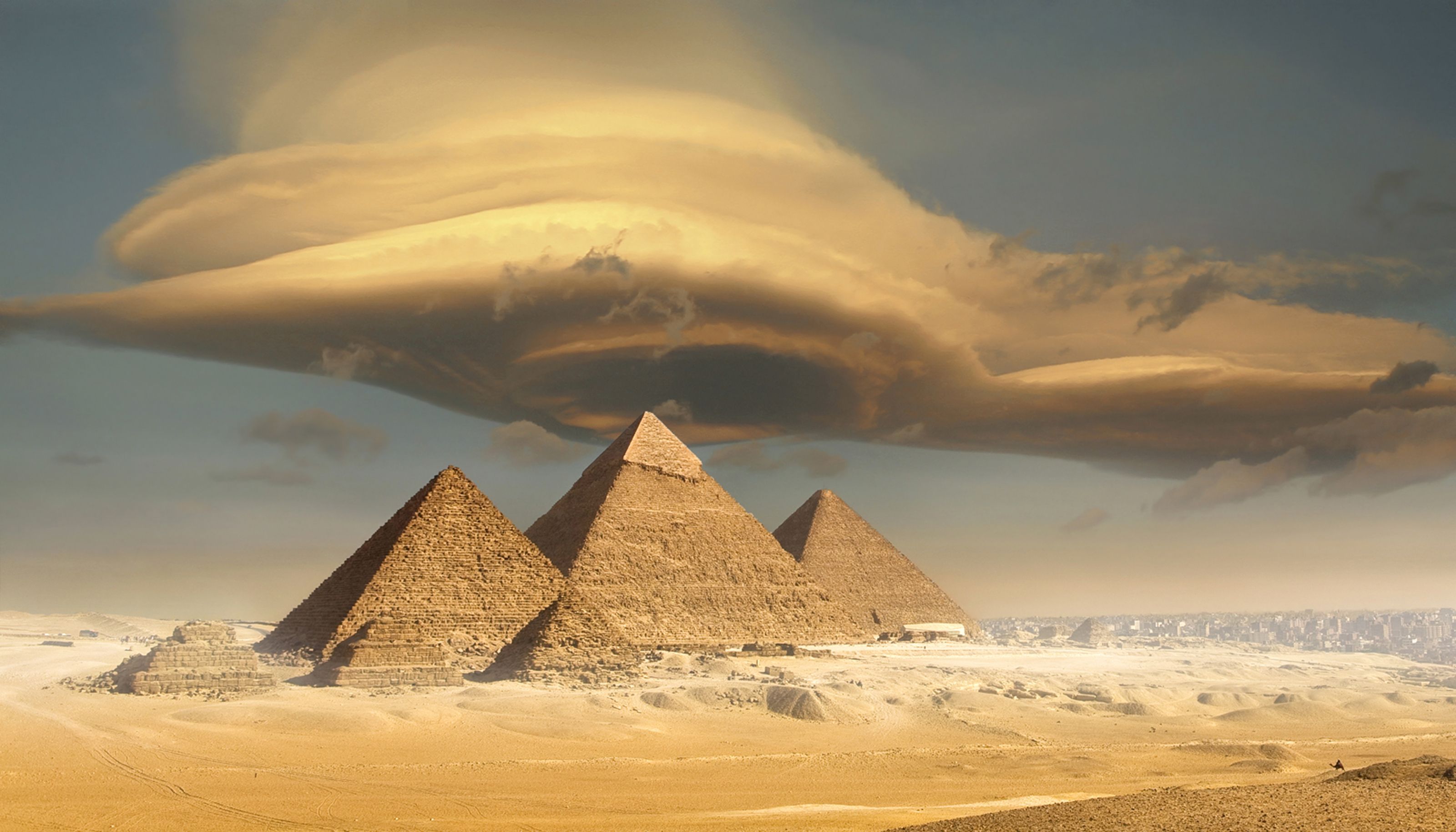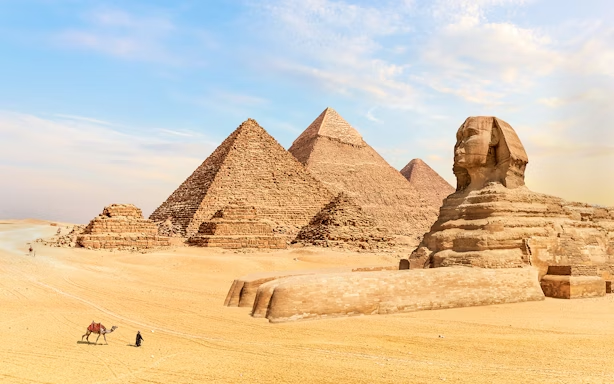Mohamed Ali Mosque

Mohamed Ali Mosque
The Mohamed Ali Mosque is grandiose, which one should not fail to see when exploring Cairo; it is the highlight, in fact, of Islamic Cairo. This majestic mosque rises as a symbol of the rich history and beautiful architecture that was etched through time upon this charming city as part of your Cairo day tours, The Alabaster Mosque, commonly referred to as the Mohamed Ali Mosque, sits within the boundary of the Citadel of Cairo. This was built in the 19th century by the then-Ottoman ruler Mohamed Ali Pasha and displays an amazing combination of the architectural styles of the Ottomans and the Mamluks. Its tall minarets and handsome dome are prominent and can be seen from much of the city, part of Cairo's picturesque skyline.
This fascinating landmark invites Rotana Egypt Travel to show its beauty. You will feel like a time traveler walking through its great halls and taking a closer look at the interior designs of the place. The walls of the mosque are alabaster and adorned with luxurious carpets, depicting serenity that reflects the spiritual heritage of Islamic Cairo, with a visit, you can take in panoramic views of Cairo from its outer terrace, allowing a staggering view of the combination of both ancient and modern structures in this city. Therefore, this makes it an important religious spot and an appropriate one for photography.
A visit to Mohamed Ali Mosque will complete your Egyptian cultural and historical heritage during a tour of Cairo's many attractions. Let Rotana Egypt Travel take you on a journey and experience the glory of one of the many treasured gems of Cairo.
Who Was Mohamed Ali?
Muhammad Ali Pasha was one of the main rulers in Egypt during the early 19th century, as an Ottoman governor, he ruled Egypt from 1805 until 1848. Mohamed Ali is a great figure in the history of Egypt for modernizing the country and turning it into a powerful state, He initiated many reforms to improve the economy of the country, building new industries, and modernizing the army. His rule over Egypt has witnessed great changes and development within the country.
He is also famous for constructing many symbolic buildings in Cairo, among them the gigantic Mohamed Ali Mosque, which still exists as a testimony to his strength and vision. The rule of Mohamed Ali represented a turning point in Egyptian history due to his establishing of nearly all modern institutions. His memory and spirit continue, even nowadays, in Egypt.
History of the Mohamed Ali Mosque in Cairo
The Mohamed Ali Mosque, otherwise known as the Alabaster Mosque, was constructed from 1830 until 1848 by Mohamed Ali Pasha Ottoman ruler of Egypt, situated within the precincts of the Citadel of Cairo, the mosque was to become a living tribute to the memory of the Prophet Muhammad and an ostentatiously symbolic gesture toward his great leadership and vision.
The design of the mosque is essentially a mixture of Ottoman and Mamluk architectural expressions with an imposing dome and tall minarets, it was made of alabaster, hence giving it that unique and elegant look. The mosque was intended not only to be a place of worship but also a monumental expression of Mohamed Ali's authority.
The mosque also features an open courtyard and interiors that have great aesthetic appeal with intricate patterns and calligraphy. Now it is among the most iconic landmarks of Cairo, as well as the most important part of Islamic Cairo, since this mosque represents much historical importance to Islamic architecture, it should be one of the key points that an explorer of Cairo should pay a visit to.
The Architectural of Mohamed Ali Mosque
The Mohamed Ali Mosque is renowned for its spectacularly beauteous, Ottoman-inspired architecture. It is composed of one big dome that fills the horizon, supported by four solid minarets rising poetically from its corners, the result of this is a facade that is pure white, adding to its grandeur and marking it amongst the most identifiable landmarks in Cairo. On the interior part, equally, the mosque is a wonder to see with beautifully adorned calligraphy and ornamental sprinklings that reflect both the Ottoman and Mamluk inspirations.
It is surrounded by an exceptionally spacious courtyard with elegant arcades, while the large ornate chandeliers emphasize the prayer hall. Such contrasts create a feeling of majesty combined with serenity, turning the Mohamed Ali Mosque into a true masterpiece of Islamic architecture in Cairo.
Mohamed Ali Mosque and the Cairo Citadel
The Mohamed Ali Mosque is a prominent feature of the Cairo Citadel, a historic fortress that has played a key role in Egypt’s history. Located atop a hill, the Citadel was built in the 12th century by Salah al-Din (Saladin) as a defensive stronghold against the Crusaders.
The mosque, constructed between 1830 and 1848 by Mohamed Ali Pasha, stands as a major architectural and cultural highlight within the Citadel, it was built to serve both as a religious site and a symbol of Mohamed Ali’s power and vision. The mosque’s elegant dome and minarets complement the Citadel’s historic walls and towers, creating a stunning visual contrast.
Visitors to the Citadel can explore the mosque’s grand interiors, including its spacious courtyard and richly decorated prayer hall, while enjoying panoramic views of Cairo from its elevated position. The combination of the mosque’s architectural beauty and the Citadel’s historical significance makes this area one of Cairo’s most captivating attractions.
Photographing the Mosque during your Cairo tour
The Mohamed Ali Mosque is one of the best landmarks in town for shooting, and your Cairo tour needs very good photography. Early morning and late afternoon are considered among the best times because the light then is soft and flattering. Shoot the dome and the towering minarets of the mosque with a wide-angle lens but do not forget to shoot inside its spacious yard, beautifully framing the grandeur of the mosque. Besides, panoramic views from the mosque's terrace give stunning opportunities for shooting Cairo's skyline, blending historic and modern elements into your photos.
Mohamed Ali Mosque’s Design
The most striking feature of the Mohamed Ali Mosque is an example of a beautiful combination of Ottoman and Mamluk architectural styles. The stunning dome surrounded by four resplendent minarets arises from each corner of the mosque. Its facade is covered with spotless white alabaster to give it a shining and dignified look. Inside, the mosque is spacious with a wide prayer hall adorned with intricate calligraphy and detailed ornamentation, reflecting both Ottoman magnificence and traditional Islamic artistry. The large chandelier in the center of the mosque and the richly patterned carpets complete the peaceful and magnificent atmosphere of the mosque. The general architecture of this mosque presents grandeur and spiritual importance, which gives reason for being one of the most interesting examples of Islamic architecture in Cairo.
Cultural and Religious Significance of Mohamed Ali Mosque
The Mohamed Ali Mosque is among the buildings in Cairo that hold deep meaning and significance in culture and religion, Built in the 19th century by Mohamed Ali Pasha, it is also the symbol of his rule and a reflection of his thoughts on Egypt's modernization process. It also serves as a major place of worship, a place of daily prayer due to its deep religious significance to locals.
This mosque speaks culturally to a blend of Ottoman and Mamluk architectural styles, hence representing both empires with which Egypt has had historical relations, by its grand design and stately presence, the Mosque is one of the focal points of Islamic Cairo, drawing visitors from around the world to come and marvel at its beauty and learn about its historical context. The mosque plays a more cultural role than a religious one in being the carrier of the thick heritage and historical growth of Cairo.
Importance of the Mohamed Ali Mosque in Egypt
The Mohamed Ali Mosque holds such importance in Egypt due to its historical and cultural associations. It's one building within the Cairo Citadel, voicing grand vision and texts belonging to Mohamed Ali Pasha true inspirer of modernization to 19th-century Egypt. Its architectural beauty speaks volumes of his influence with a great dome and slender minarets, representing the Ottoman architectural style.
At the same time, the mosque represented an important locus of Islamic Cairo and symbolically expressed the artistic traditions and religiosity of the period. It shall remain an important place of worship and thus be symbolic of the historical development of Cairo. In this respect, the imposing nature of this mosque appeals not only to tourists but also to scholars, encompassing in its creation the importance of Egypt's heritage and continuities with both the Ottoman and Mamluk ages.
By the time one gets to the end of this tour of the Mohamed Ali Mosque, one can see why this would be such an important part of Cairo's heritage. It stands as a testament not only to the greatness and vision of Mohamed Ali Pasha but also as an integral part of Islamic Cairo's cultural-religious entity. The breathtaking design-cum-architecture with a huge dome and fascinating minarets speaks of the heights of Ottoman architectural splendor, while the internal serenity provides a healthy retreat from the bustling city outside, being more of a historical mosque than a place of worship, it symbolizes the transformation phase that modernized Egypt and, for the first time in the development of Egypt, a new turning point cropped up under the leadership of Mohamed Ali. The details of the art and the intricacy of craftsmanship in the design of this mosque speak volumes of the great cultured heritage of Egypt and its historic links with both the Ottoman and Mamluk traditions.
Visiting the Mohammed Ali Mosque was quite a thing, balancing historic insight with architectural beauty. Be it the awe of the alabaster facade of the mosque, traversing its spacious courtyard, or simply taking in the panorama of Cairo from its terrace-the mosque says much about the past and present of Egypt, continue your Cairo Day Tour and beyond as the splendor of the Mohamed Ali Mosque creates an eagerness within you to be enticed by the cultural and historical treasures of Egypt. Being a landmark, it is also a bridge between the past and the present, calling upon all who enter to participate in a salute of its legacy and reflection of the rich heritage it so rightly represents. Standing tall and proud, its importance unraveled to the very present day, the Mohamed Ali Mosque is one of those bases upon which rests the identity of Cairo and symbolizes Egypt's continuing appeal.
Egypt Tours FAQ
Of course, travelers must obtain a visa, which can be obtained upon arrival or online for some nationalities.
Egypt is generally safe for tourists and residents, and you should consult travel specialists to find out the best places to visit in Egypt.
The Egyptian pound (EGP) is the official currency in Egypt.
The language is Arabic, but in tourist areas English is widely spoken.
Egypt offers a range of tours, including historical, cultural, and adventure trips that cater to all interests
Yes, many Egypt trips are family-friendly, offering educational experiences and activities suitable for all ages.
Private Egypt tours can be easily booked through us, offering customized itineraries based on your preferences.
Guided tours in Egypt include a professional guide, who provides insight and comfort, while self-guided tours allow more flexibility but you won't get the information a tour guide gives you.
comfortable clothing suitable for the climate, sunscreen, and essentials for exploring historical sites






.jpg)


